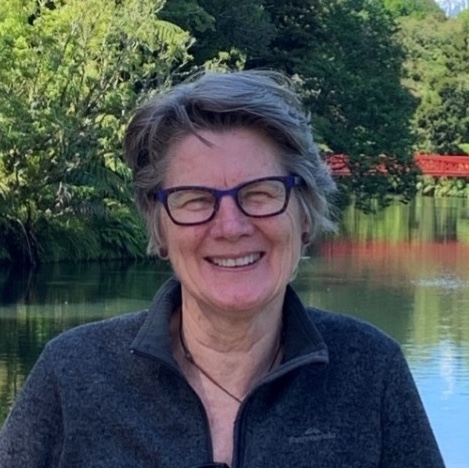Jane Terrell designs and facilitates courses and workshops in adult learning, both online and in-person. Currently contracting as a workplace learning and professional development facilitator, her areas of interest include train-the-trainer, communication skills and mindfulness training. She has taught in universities, wānanga (Māori universities), vocational institutes, and workplaces in New Zealand, Austria, and Vietnam.
Jane’s qualifications include a Master’s degree in Educational Administration, BA in English and German, Graduate Diploma in Secondary (High School) Teaching, and Cambridge Certificate in Teaching English as a Foreign Language. She is a Certified Mindfulness Teacher with the US-based Mindfulness Institute for Emerging Adults, and a student of social anthropology. She is also a keen traveller and fascinated grandmother.
As a New Zealander, Jane takes her cue from the Māori concept of “ako”, that learning and teaching are interchangeable. She believes that deep learning happens in the context of a reciprocal relationship, where teacher and learner are both transformed by the experience. To facilitate this, she aims to honour diverse voices and make space for them to be heard.




